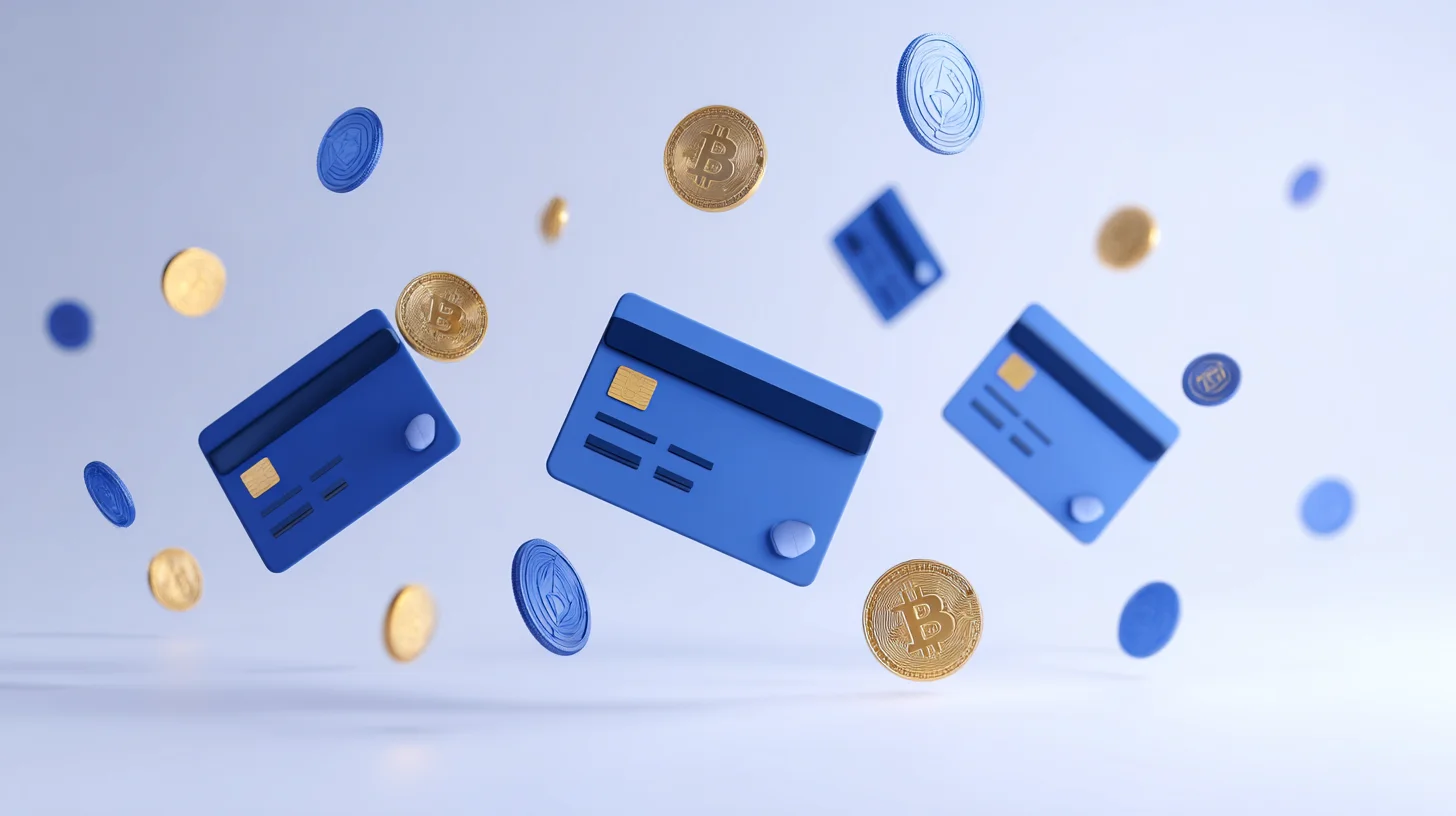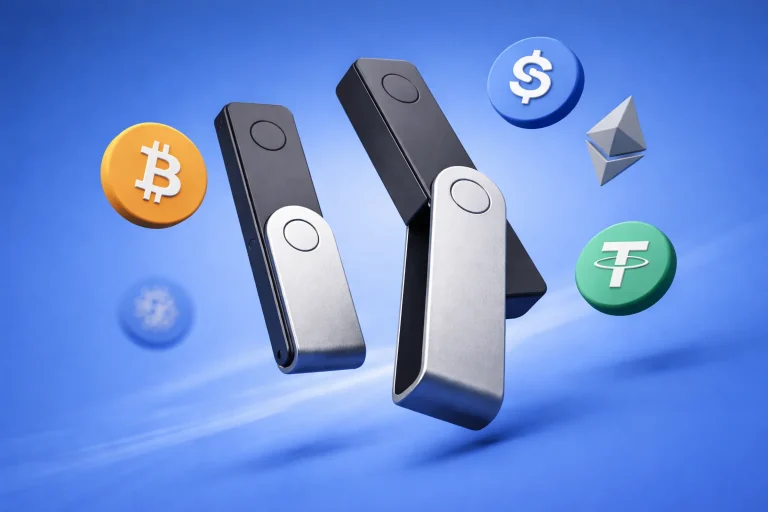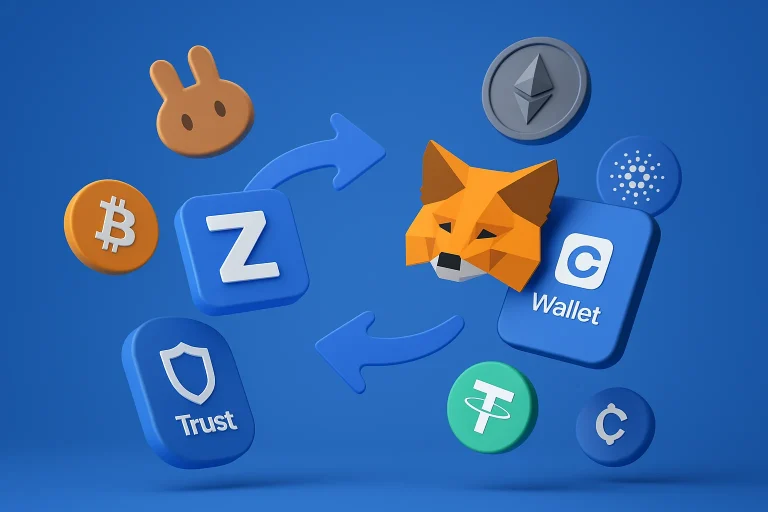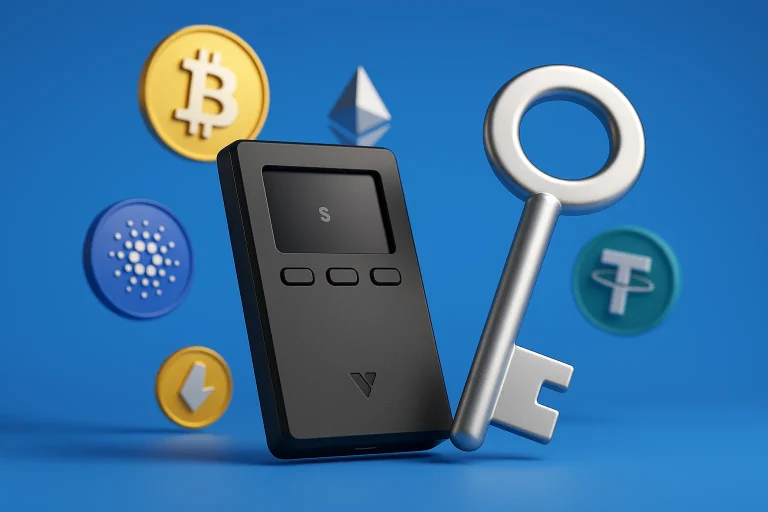In 2026, crypto users face a significant challenge: There are so many wallets on the market that it’s hard to know which one to trust. Whether you’re new to crypto or have been investing for years, finding a wallet that’s secure, easy to use, and works well on your phone is tough.
This is especially important because over 700 million worldwide own crypto assets. With so much money and data at stake, even a minor mistake can expose your cryptocurrency to hackers and thieves.
That’s why picking the right crypto wallet matters; it’s your first line of defense.
To help you choose the right wallet, we’ve compiled a simple, straightforward guide to the best wallet for cryptocurrency in 2026. We’ll walk you through their security features, ease of use, and compatibility with your phone.
That way, you can feel confident about protecting your crypto assets, no matter where you are.
Table of contents
Best Wallet for Cryptocurrency: Quick Comparison
If you’re unsure which crypto wallet to choose, here’s a quick comparison to help you find the right one for your needs. Each wallet offers unique features, different security measures, and support for mobile or desktop apps.
This table makes it easy to see what each wallet is best for and who it’s designed to help.
Quick Comparison | |
|---|---|
| Ledger | Best for: Maximum Security With Offline Cold Storage; Mobile app: Yes; Security: Hardware wallet (cold storage); User type: Advanced users who want to store large amounts safely offline. |
| Trezor | Best for: Open-Source Transparency and Simple Cold Storage; Mobile app: Yes; Security: Hardware wallet (cold storage); User type: Beginners and intermediate users who value transparency and security. |
| MetaMask | Best for: Defi and NFT Trading; Mobile app: Yes; Security: Hot wallet (connected to the internet), supports hardware wallets; User type: Active DeFi users and NFT collectors. |
| Zerion | Best for: Managing Multi-Chain Defi Assets on Mobile; Mobile app: Yes; Security: Hot wallet (connected to the internet), with DeFi integrations; User type: DeFi enthusiasts who need a mobile-first experience. |
| Rabby | Best for: Cross-Chain Dapp Interactions and Privacy; Mobile app: Yes; Security: Hot wallet with strong privacy controls; User type: Power users managing multiple blockchain ecosystems. |
1. Ledger Wallet: Best for Maximum Security and Offline Storage
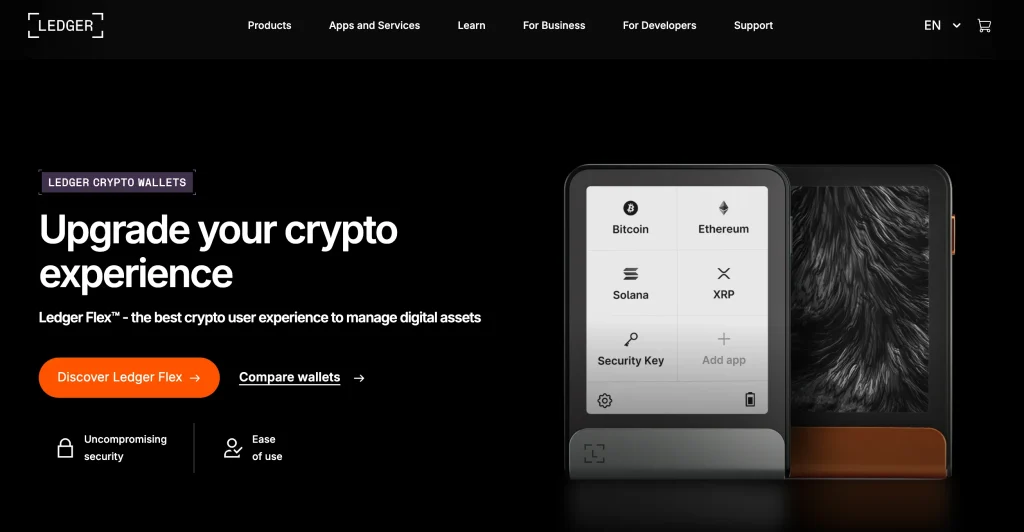
For over 10 years, Ledger has been the trusted choice for secure self-custody of crypto assets, selling over 8 million devices worldwide. Its hardware wallet uses a secure chip, like those used by banks, making it nearly impossible for hackers to steal your private keys. The Ledger Live app also makes managing digital assets easy, all from one place.
If you’re holding a large amount of crypto, the Ledger hardware wallet provides the peace of mind that software wallets can’t match.
Ledger Specifications | |
|---|---|
| Cold Storage Security | Hardware wallets store private keys offline on a secure chip, protecting against online threats and malware. |
| Multi-Currency Support | Over 5,500 coins supported, including Bitcoin, Ethereum, and major altcoins. |
| Ledger Live App | Comprehensive mobile and desktop app for portfolio management and transactions. |
| Hardware Integration | Physical buttons for transaction confirmation directly on the device. |
| Backup & Recovery | 24-word recovery phrase for wallet restoration on any compatible device. |
| dApp Access | Connect to decentralized applications while keeping private keys secure. |
| Staking Support | Built-in staking for multiple cryptocurrencies directly through Ledger Live. |
| Regular Updates | Firmware updates are made to support new features and maintain security standards. |
Why We Choose It
Ledger stands out for its robust security features, making it ideal for users seeking maximum protection for their digital assets.
2. Trezor Wallet: Best for Open-Source Transparency and User-Friendly Hardware
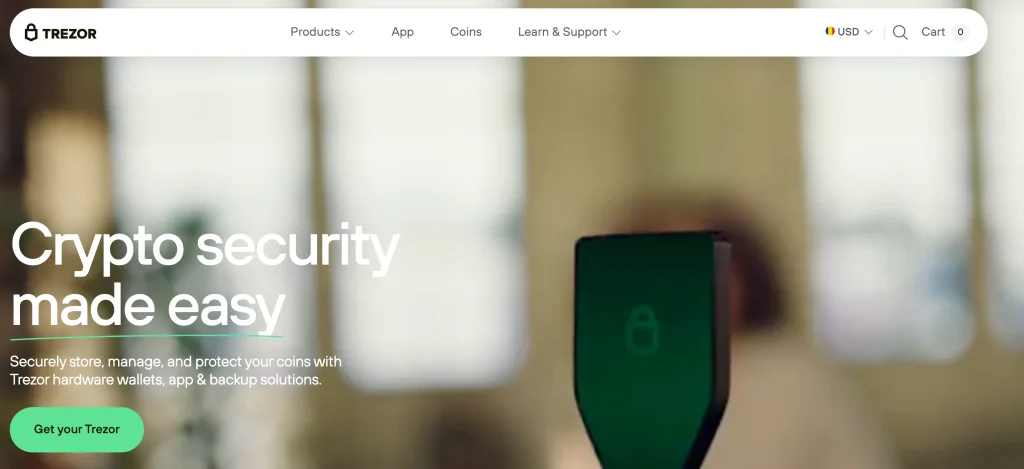
Trezor is a non-custodial wallet designed to be user-friendly for beginners while offering advanced features for experienced users. With a strong reputation and a transparent, open-source development process, Trezor is an excellent choice for those prioritizing security and accountability in managing their cryptocurrency.
Trezor Specifications | |
|---|---|
| Open-Source Firmware | Fully transparent code that the community can audit. |
| Pin Protection | Secure PIN entry system with randomized layout for added security. |
| Passphrase Support | An optional 25th word for an additional security layer. |
| Trezor Suite | User-friendly interface for wallet management on desktop and web. |
| Multi-Account Support | Create multiple accounts for better organization and privacy. |
| Coin Control | Advanced features for selecting specific UTXOs in transactions. |
| Shamir Backup | Split the recovery seed into multiple shares for enhanced security. |
| Password Manager | Built-in encrypted password manager functionality. |
Why We Choose It
Trezor’s commitment to transparency through open-source firmware and its user-friendly design make it a top choice for beginners and experienced users.
3. Metamask Wallet: Best for Seamless DeFi and NFT Integration
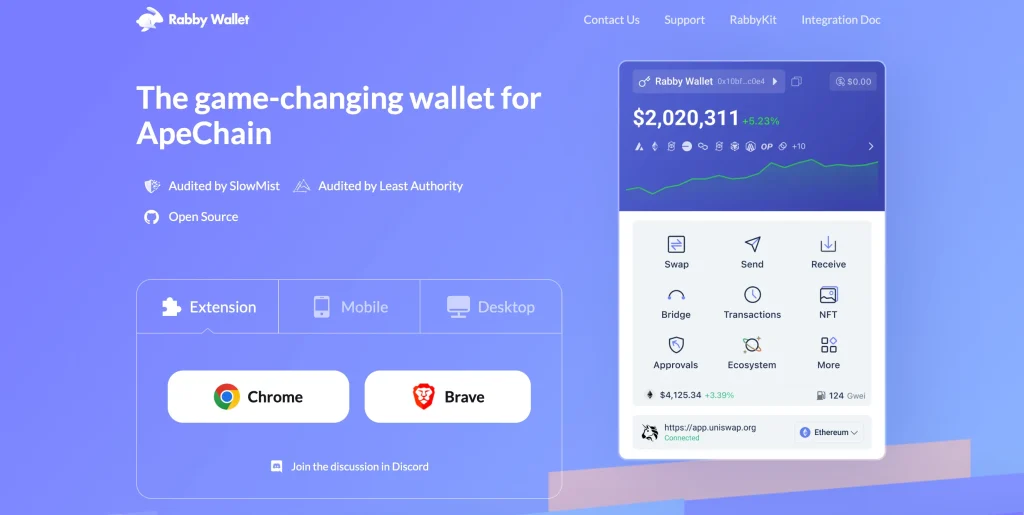
MetaMask has become one of the most popular wallets, boasting over 100 million installs and 30 million monthly active users. It works smoothly with Ethereum and supports multiple blockchains, making it perfect for DeFi and NFT activities.
With its browser extension and mobile user support, using decentralized apps is as easy as clicking a button.
Metamask Specifications | |
|---|---|
| Multi-Chain Support | Native support for Ethereum, Polygon, BNB Chain, Arbitrum, and more |
| dApp Integration | Seamless connection to thousands of decentralized applications |
| Built-in Swap | Direct transfer of crypto and swapping within the wallet. |
| NFT Management | View, send, and manage NFTs directly in the wallet |
| Hardware Wallet Support | Compatible with Ledger and Trezor for enhanced security |
| Mobile & Browser | Available as a browser extension and a mobile app |
| Custom Networks | Easy addition of new blockchain networks |
| Token Import | Automatic token detection and manual token addition |
Why We Choose It
MetaMask offers a seamless gateway to the decentralized web, allowing users to interact with various dApps, DeFi platforms, and NFT marketplaces directly from their browser or mobile device.
4. Zerion Wallet: Best for Managing Multi-Chain DeFi Portfolios on Mobile
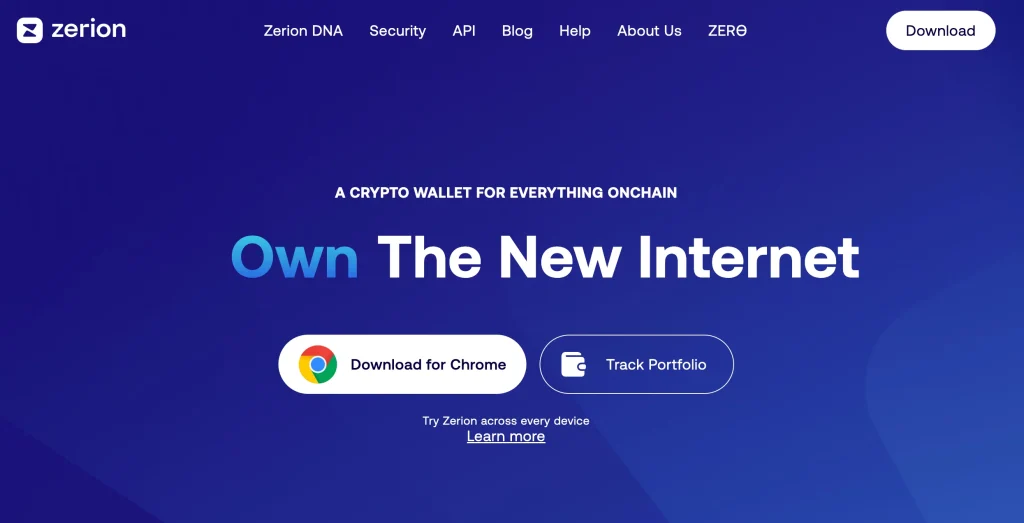
Zerion makes managing DeFi portfolios easy and mobile-friendly. Unlike other wallets adapted for phones, Zerion was built for mobile from the start. Its clear interface turns complex DeFi data into simple, easy-to-understand information, perfect for keeping track of investments on the go.
With full portfolio tracking and smooth protocol integrations, Zerion is a great choice for active DeFi users who want powerful tools in a mobile-first app.
Zerion Specifications | |
|---|---|
| Portfolio Tracking | Real-time tracking of DeFi positions across multiple chains. |
| Multi-Chain DeFi | Support for Ethereum, Polygon, Arbitrum, Optimism, and BNB Chain. |
| Mobile-First Design | Optimized user experience specifically for smartphone usage. |
| DeFi Protocol Integration | Direct access to popular DeFi protocols like Uniswap, Aave, and Compound. |
| Yield Tracking | Monitor earnings from staking, lending, and liquidity provision. |
| Gas Optimization | Smart gas fee suggestions to minimize transaction costs. |
| Social Features | Follow other users’ portfolios and discover new opportunities. |
| Security Controls | Biometric authentication and transaction signing. |
Why We Choose It
Zerion stands out for its comprehensive DeFi integration and multi-chain support, all within a user-friendly mobile application. It’s ideal for users who actively manage diverse crypto portfolios on the go.
5. Rabby Wallet: Best for Cross-Chain dApp Interactions and Enhanced Privacy
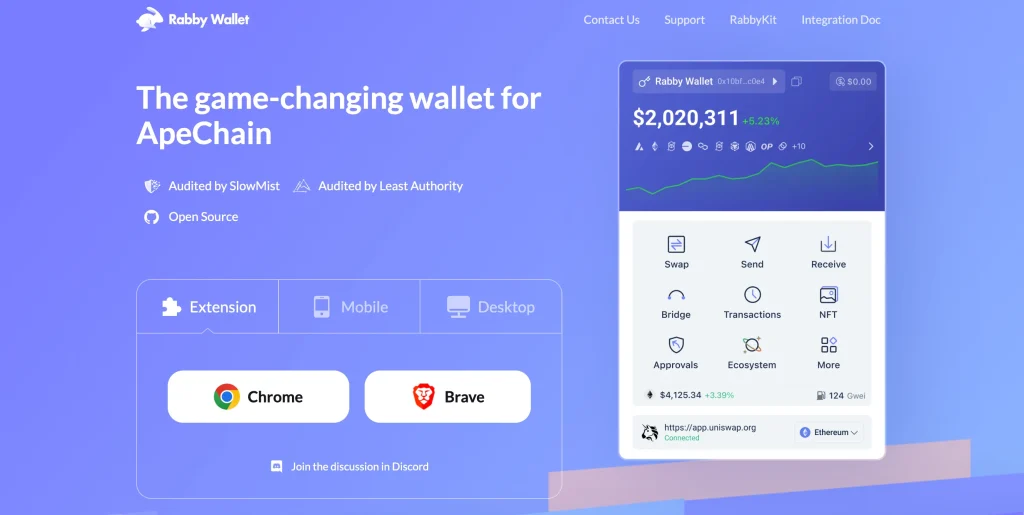
Rabby Wallet is designed for experienced crypto users who want advanced features and strong privacy. Its cross-chain support lets you use different blockchains easily without constant switching. Rabby’s focus on security and privacy makes it perfect for those who want to stay anonymous while using DeFi.
Users also appreciate its features, including transaction simulation and broad support for dApps, which make complex DeFi tasks easier.
Rabby Specifications | |
|---|---|
| Cross-Chain Management | Seamless asset management across multiple blockchain networks. |
| Advanced Privacy | Enhanced privacy controls and transaction obfuscation options. |
| dApp Compatibility | Optimized for complex decentralized application interactions. |
| Multi-Address Support | Manage multiple wallet addresses from a single interface. |
| Custom RPC Support | Add and manage custom blockchain network endpoints. |
| Transaction Simulation | Preview transaction outcomes before execution. |
| Advanced Security | Multiple signature algorithms and enhanced security protocols. |
| Developer Tools | Built-in tools for developers and power users. |
Why We Choose It
Rabby Wallet provides a secure and private environment for users interacting with multiple dApps across various chains. Its advanced features cater to power users who prioritize security and cross-chain functionality.
How to Choose the Best Wallet for Cryptocurrency
Picking the right crypto wallet isn’t just about what’s popular. It’s about what truly works for your needs and keeps your funds safe. Here’s how to make the choice easier and find the right wallet for cryptocurrency:
1. Identify Your Crypto Goals
Understanding how you plan to use your cryptocurrency is key to choosing the right wallet:
- Are you planning to trade crypto daily or just hold your coins for long-term investment?
- Do you want to access your crypto easily from your phone, or do you prefer the security of a computer-based wallet?
- Are you mainly interested in Bitcoin and Ethereum, or do you also want to explore DeFi and NFTs?
2. Prioritize Security
Security should always be your top priority, especially if you’re storing large amounts:
- A hardware wallet like Ledger or Trezor is your best choice for maximum security and offline storage. These wallets store your crypto offline (cold storage), keeping it safe from hackers and malware.
- If you want flexibility and fast access to DeFi apps, NFT trading, or crypto swaps, choose a hot wallet like MetaMask, Zerion, or Rabby. They’re easier to use for online transactions, but remember: hot wallets are online and more exposed to threats.
3. Look for Mobile Compatibility
Having your wallet on your phone can be convenient and practical:
- Mobile-friendly wallets like MetaMask and Zerion have apps you can download from Google Play or the App Store, making it easy to manage your crypto wherever you are.
- Hardware wallets like Ledger and Trezor don’t have full mobile apps, but they have companion apps (like Ledger Live) so you can track your balance on the go.
4. Focus on User Experience
A wallet’s design and ease of use can make a big difference, especially for beginners:
- Trezor is often praised for its intuitive interface and clear instructions, which make it perfect for new crypto users.
- Rabby is designed for advanced users who need cross-chain support and privacy features, ideal if you’re active in DeFi and using many blockchains.
5. Check for Extra Features
Some wallets come with built-in tools that can make managing your crypto even easier:
- Features like staking, token swaps, and integration with dApps can help you do more without switching apps or platforms.
Choose a wallet that supports the features you want to use in your crypto journey.
6. Think About Backup and Recovery Options
It’s also crucial to consider how easy it is to recover your wallet if you lose access:
- Good wallets provide secure backup phrases (seed phrases) so you can always recover your funds.
- Never share this phrase with anyone; store it in a safe place offline.
Considering these factors, you can choose the best cryptocurrency wallet and secure your digital assets.
FAQ
Where Is the Best Place to Keep Your Crypto Wallet?
The best place to keep your crypto is in a hardware wallet. This small device keeps your private keys offline, so hackers can’t access them. Because your keys never leave the device, crypto stays much safer than online wallets.
What Is the Most Trusted Cryptocurrency?
Bitcoin is widely considered the most trusted cryptocurrency because it’s the oldest and has the strongest security track record. Yet, the most trusted cryptocurrency depends on your goals and how you plan to use it.
Does It Matter Which Crypto Wallet You Have?
Yes, it matters a lot! Different wallets have different security levels, features, and user experiences. For example, hardware wallets are best for secure, long-term storage, while mobile wallets are great for everyday use and DeFi.
Is a Crypto Wallet Free?
Most software wallets, like MetaMask or Zerion, are free to download and use. Hardware wallets, like Ledger and Trezor, cost money because they are physical devices that store your crypto offline.
No matter what type you choose, you’ll still need to pay transaction fees when sending or swapping crypto.
What’s the Safest Hot Wallet?
MetaMask is often considered one of the safest hot wallets because it’s widely used and regularly updated. But hot wallets are online, so they’re more exposed to potential attacks. Always enable extra security features, like two-factor authentication (2FA).
Final Thoughts
Each wallet we covered has something unique to offer. If you want top-level security, Ledger and Trezor keep your crypto safe offline. For easy access to DeFi and NFTs from your phone, MetaMask and Zerion have handy apps you can get on Google Play and the App Store. And if you’re after powerful privacy features and cross-chain DeFi tools, Rabby’s got you covered.
Whether investing long-term or actively trading on your phone, choosing a wallet that meets your needs is crucial. With the right wallet, you can confidently manage your crypto and protect your assets, wherever you are.

